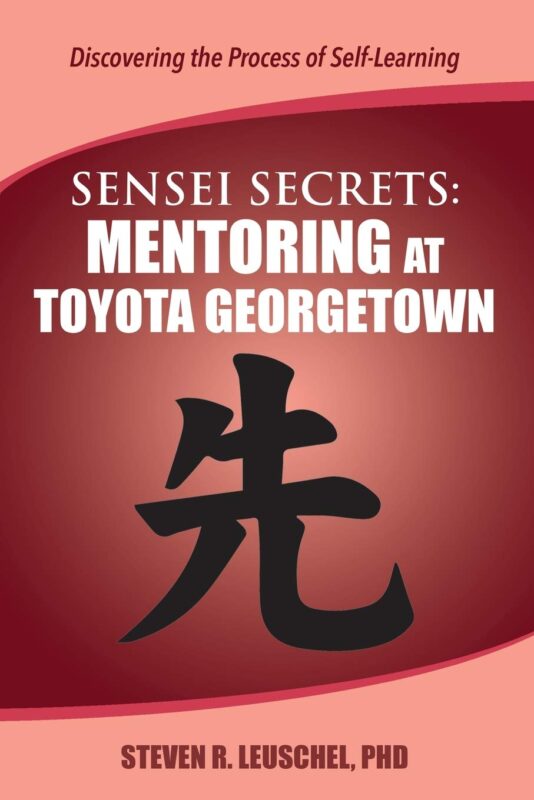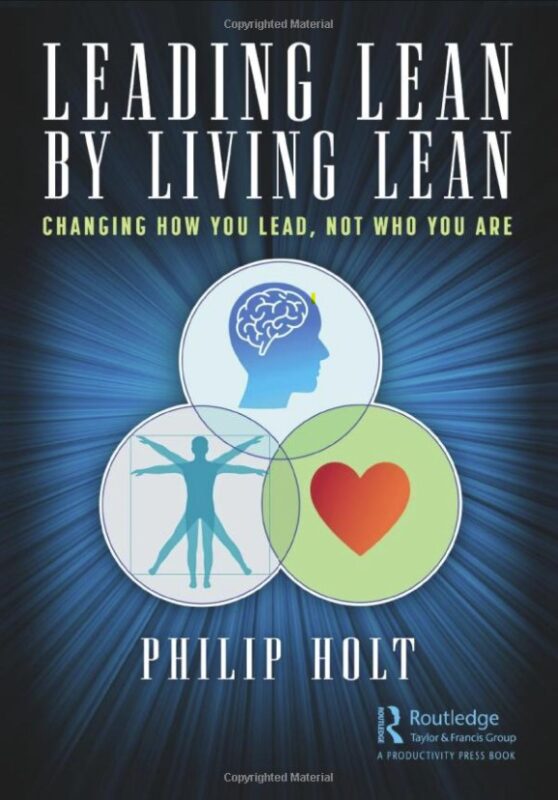Sensei Secrets: Mentoring at Toyota Georgetown
This study examines the developmental interactions between Japanese senseis (mentors) and early American leaders at Toyota Motor Manufacturing Kentucky (TMMK). More specifically, this study examines why and how these early American leaders transitioned from the initiation phase of a mentor relationship to the active and transforma- tional participation of the cultivation phase. This research identifies characteristics of developmental interactions so that other leaders and mentors can effectively adapt Toyo- ta-style management practices and thinking.
Though the professionalization of Toyota Production Systems (TPS), also known as lean manufacturing, or sim- ply lean, has proven to be vast, the success rate of emula- tion and adaptation of sustained TPS has been low. One of the many problems that organizations face when adapting TPS is executive resistance and misunderstanding of lean management and leadership (Emiliani, 2018; Sherman, 1994). Toyota faced a similar problem of resistance when it hired leaders from other automotive companies into Toyota during the initial years at TMMK. Understanding how Toy- ota overcame this resistance offers insight into better mento- ring for adapting TPS.
This study performs qualitative interviews using oral history and grounded theory techniques. It specifically identifies characteristics of the transition from the initiation to cultivation phases of mentor relationships within TMMK from 1986 to 1992. This research illustrates how leaders who never before experienced the Toyota culture experienced transformation within mentor relationships, which enabled them to adopt Toyota's frame of reference for solving prob-lems and ultimately Toyota's culture. The findings may prove adaptable and beneficial for other leaders and execu- tives adopting TPS.
More info →The Daily Pursuit of Excellence: The 4 Keys to Achieving Superior Performance
The Daily Pursuit of Excellence is one of the best leadership books to help you maximize your personal effectiveness, influence people, improve organizational efficiency, and develop a culture of excellence in your company. The learnings from 50 years of experience are summarized in the 4 key principles for achieving superior performance-leadership, people, systems, and culture.
The principles enable rapid transformation in any organization. Through personal stories and experiences, a proven roadmap is provided for demonstrating strong leadership to create a culture of excellence that matches the expectations of the organization. In today's competitive environment, individuals and organizations must be best-in-class to compete and win.
Smolik's book describes a practical way to be a results-focused leader and drive improvement in safety, reliability, quality, and the customer experience.
The book summarizes best practices in a manner that readers can easily understand and implement. A clear roadmap is provided for how to design, utilize, and maintain a good management system and to create a strong culture that provides consistency in performance and productivity. Simplicity is a prevailing theme throughout the book.
More info →Leading Lean by Living Lean: Changing How You Lead, Not Who You Are (1st Edition)
In Leading Lean by Living Lean, Philip Holt details and explains what is probably the most important part of becoming a Lean Leader -- living and practicing what you preach. To do this you must believe in what you’re doing, understand what it means and what you need to do, and do it every day. The author, through his engineering background, has fully embraced the Plan-Do-Check-Act (PDCA) model of Deming / Shewhart but has adapted David Bovis’ Believe-Think-Feel-Act (BTFA) model to understand why logic and facts are very often not the principal players in the game of change.
In this book, Holt author describes how you can take both the PDCA and BTFA models into account and has sectioned the book into three prime parts:
- Head -- How you learn and understand the Lean principles and their application.
- Hands -- How you practice Lean Leadership daily.
- Heart -- How you internalize and believe in Lean Leadership.
Through this book, you, the Lean practitioner, whether aspiring or experienced, will have everything that you need to “lead it,” “do it,” and “live it.”
The nature of this book is more “why to” than “how to” – the author knows that he cannot tell you how to lead, do, or live Lean; he can only explain why it is so important and share his knowledge, experiences, failures, and successes. This book isn’t so much a self-help book as a self-reflection book and it can point you in the proper direction, but… the book won’t change you; only you can change you!
Essentially, with this book, the author wants those who think of Lean as a toolkit, who believe that Lean can be project managed, or who argue about Lean versus Six Sigma and misunderstand the fundamental depth of impact that true Lean Leadership has on an organization to be disabused of any or all of those notions. This book is aimed at those leaders who seek to experience the full transformative effects of Lean in their organizations and want to practice it at the principle level of deployment. Holt's aim is to help business leaders enhance who they are by changing what they do and the way that they do it
More info →





